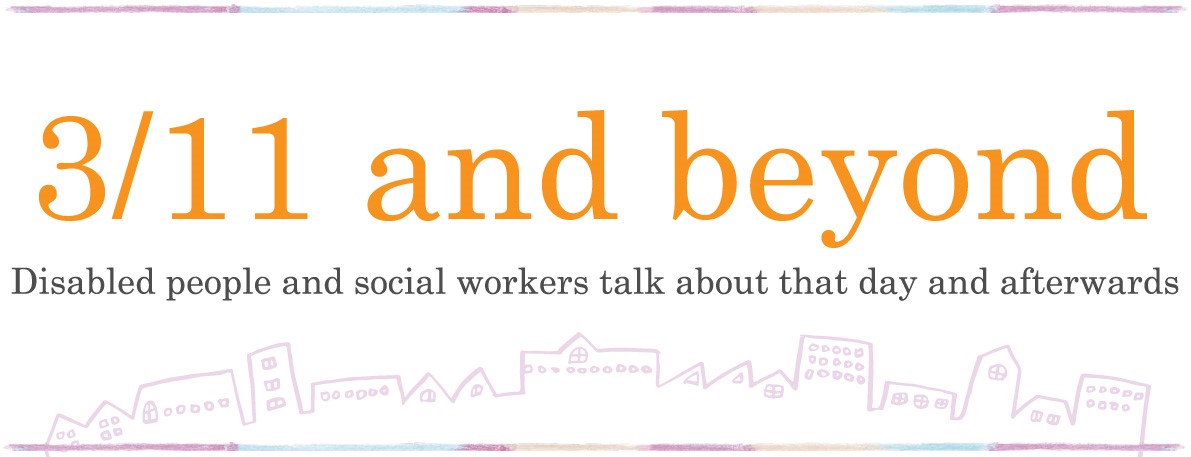
For future development

Do you still feel you are putting all your energy in the reconstruction, Ms. Matsubara?
I don’t think I’m putting all my energy, but I think things will go backward if we stop. My goal was to establish in Onagawa a place for people with disabilities to be able to work, and help it run smoothly. From this particular point of view, I feel I could achieve something.
Considering the characteristics of the area, I believe we don’t need to expand the capacity of this workshop in Onagawa.
However, I am always considering expanding the business and tasks. They are related to work flows and economic aspects such as efficiency of the work, their improvements, about making better quality products, and the way how we could raise the payment.
Not doing things frantically but calculating for better outcome and trying with helps of people around us; that is what we could do. If things don’t work out, we find ways to promptly withdraw. We need to secure not to accumulate financial loss, that’s the bottom line I think.
We have been doing in this way by trying different methods, I suppose.
What is Kirara Onagawa trying to do in view of its future?
It is to hand our visions down to next generations. There are two key points I need to convey to staff members. Our role of course is to support persons with disabilities for their employment.
Firstly, we need to form sense of due responsibility and skills to check our own work. It’s a plain standard for private companies.
Second point is not to spare any effort to help improve trainees’ skills.
I will try to convey these to the staff, and I hope they do the same to future generations. Expanding the things what trainees can do is beneficial both for them and for the workshop.
We, staff have to show how to do first. With efforts of the trainees themselves and the perseverance of the staff, they will acquire the skills. It would be ideal that one day a trainee pushes staff’s hands away and says “I don’t need your help anymore.”



